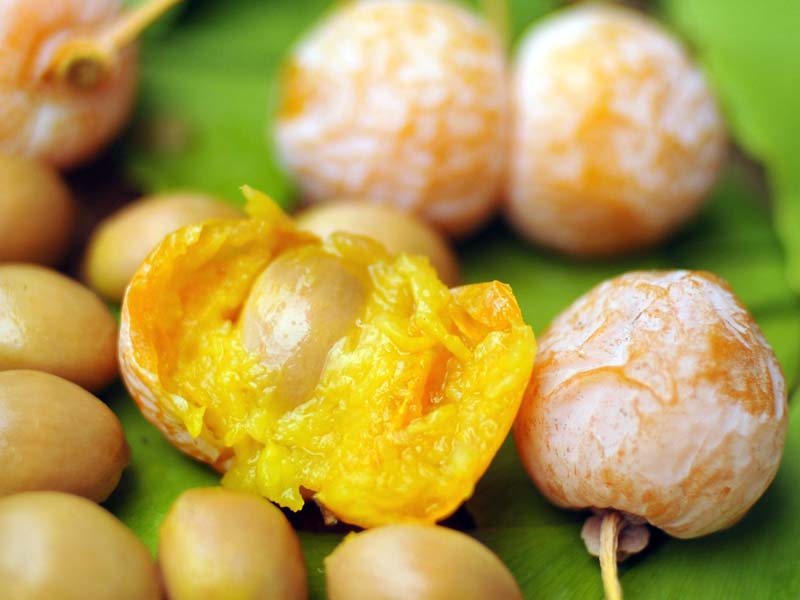Special precautions & warnings about Ginkgo
- Pregnancy and breast-feeding: Ginkgo is POSSIBLY UNSAFE when taken by mouth during pregnancy. It might cause early labor or extra bleeding during delivery if used near that time. Not enough is known about the safety of using ginkgo during breast-feeding. Do not use ginkgo if you are pregnant or breast-feeding.
- Infants and children: Ginkgo leaf extract is POSSIBLY SAFE when taken by mouth for a short time. Some research suggests that a specific combination of ginkgo leaf extract plus American ginseng might be safe in children when used short-term. Do not let children eat the ginkgo seed. It is LIKELY UNSAFE.
- Diabetes: Ginkgo might interfere with the management of diabetes. If you have diabetes, monitor your blood sugar closely.
- Seizures: There is a concern that ginkgo might cause seizures. If you have ever had a seizure, don’t use ginkgo.
- Infertility: Ginkgo use might interfere with getting pregnant. Discuss your use of ginkgo with your healthcare provider if you are trying to get pregnant.
- Bleeding disorders: Ginkgo might make bleeding disorders worse. If you have a bleeding disorder, don’t use ginkgo.
- Surgery: Ginkgo might slow blood clotting. It might cause extra bleeding during and after surgery. Stop using ginkgo at least 2 weeks before a scheduled surgery.

Ginkgo Interactions with Medications
Major: Do not take this combination.
Efavirenz (Sustiva)
Efavirenz (Sustiva) is used to treat HIV infection. Taking efavirenz (Sustiva) along with ginkgo extract might decrease the effects of efavirenz (Sustiva). Before taking ginkgo, talk to your healthcare provider if you take medications for HIV.
Talinolol
Taking ginkgo leaf extract multiple times per day might increase levels of talinolol. In theory, this might increase the effects and side effects of talinolol. However, taking a single dose of ginkgo does not seem to affect talinolol levels.
Moderate
Be cautious with this combination.
Alprazolam (Xanax)
Taking ginkgo along with alprazolam might decrease the effects of alprazolam in some people.
Buspirone (BuSpar)
Ginkgo seems to affect the brain. Buspirone (BuSpar) also affects the brain. One person felt hyper and overexcited when taking ginkgo, buspirone (BuSpar), and other medications. It is unclear if this interaction was caused by ginkgo or the other medications.
Fluoxetine (Prozac)
Taking ginkgo along with buspirone (BuSpar), St. John’s wort, melatonin, and fluoxetine (Prozac) might cause you to feel irritated, nervous, jittery, and excited. This is called hypomania. It’s not known if this is a concern when just ginkgo is taken with fluoxetine (Prozac).
Ibuprofen
Ginkgo might slow blood clotting. Ibuprofen can also slow blood clotting. Taking ginkgo with ibuprofen might slow blood clotting too much and increase the chance of bruising and bleeding.
Medications changed by the liver (Cytochrome P450 1A2 (CYP1A2) substrates)
Some medications are changed and broken down by the liver. Ginkgo might decrease how quickly the liver breaks down some medications. Taking ginkgo along with some medications that are changed by the liver might increase the effects and side effects of some medications. Before taking ginkgo, talk to your healthcare provider if you take any medications that are changed by the liver.
Some of these medications that are changed by the liver include clozapine (Clozaril), cyclobenzaprine (Flexeril), fluvoxamine (Luvox), haloperidol (Haldol), imipramine (Tofranil), mexiletine (Mexitil), olanzapine (Zyprexa), pentazocine (Talwin), propranolol (Inderal), tacrine (Cognex), theophylline, zileuton (Zyflo), zolmitriptan (Zomig), and others.
Medications changed by the liver (Cytochrome P450 2C19 (CYP2C19) substrates)
Some medications are changed and broken down by the liver. Ginkgo might increase how quickly the liver breaks down some medications. Taking ginkgo with these medications might decrease how well the medication works. Before taking ginkgo, talk to your healthcare provider if you take any medications that are changed by the liver.
Some of these medications that are changed by the liver include amitriptyline (Elavil), carisoprodol (Soma), citalopram (Celexa), diazepam (Valium), lansoprazole (Prevacid), omeprazole (Prilosec), phenytoin (Dilantin), warfarin (Coumadin), and many others.
Medications changed by the liver (Cytochrome P450 2C9 (CYP2C9) substrates) Some medications are changed and broken down by the liver. Ginkgo might decrease how quickly the liver breaks down some medications. Taking ginkgo along with these medications that are changed by the liver might increase the effects and side effects of your medication. Before taking ginkgo, talk to your healthcare provider if you take any medications that are changed by the liver.
Some medications that are changed by the liver include amitriptyline (Elavil), diazepam (Valium), zileuton (Zyflo), celecoxib (Celebrex), diclofenac (Voltaren), fluvastatin (Lescol), glipizide (Glucotrol), ibuprofen (Advil, Motrin), irbesartan (Avapro), losartan (Cozaar), phenytoin (Dilantin), piroxicam (Feldene), tamoxifen (Nolvadex), tolbutamide (Tolinase), torsemide (Demadex), warfarin (Coumadin), and others.
Medications changed by the liver (Cytochrome P450 2D6 (CYP2D6) substrates)
Some medications are changed and broken down by the liver. Ginkgo might decrease how quickly the liver breaks down some medications. Taking ginkgo along with some medications that are changed by the liver can increase the effects and side effects of your medication. Before taking ginkgo, talk to your healthcare provider if you take any medications that are changed by the liver.
Some medications that are changed by the liver include amitriptyline (Elavil), clozapine (Clozaril), codeine, desipramine (Norpramin), donepezil (Aricept), fentanyl (Duragesic), flecainide (Tambocor), fluoxetine (Prozac), meperidine (Demerol), methadone (Dolophine), metoprolol (Lopressor, Toprol XL), olanzapine (Zyprexa), ondansetron (Zofran), tramadol (Ultram), trazodone (Desyrel), and others.
Medications changed by the liver (Cytochrome P450 3A4 (CYP3A4) substrates)
Some medications are changed and broken down by the liver. Ginkgo might affect how quickly the liver breaks down some medications, and lead to a variety of effects and side effects. Before taking ginkgo, talk to your healthcare provider if you are taking any medications that are changed by the liver.
Some medications changed by the liver include lovastatin (Mevacor), clarithromycin (Biaxin), cyclosporine (Neoral, Sandimmune), diltiazem (Cardizem), estrogens, indinavir (Crixivan), triazolam (Halcion), and others.
Medications for depression (Antidepressant drugs)
Ginkgo might decrease a brain chemical called serotonin. Some medications for depression increase serotonin. Taking ginkgo along with these medications for depression might decrease their effectiveness.
Some of these medications for depression include fluoxetine (Prozac), paroxetine (Paxil), sertraline (Zoloft), and others; and tricyclic and atypical antidepressants such as amitriptyline (Elavil), clomipramine (Anafranil), imipramine (Tofranil), and others.
Medications for diabetes (Antidiabetes drugs)
Diabetes medications are used to lower blood sugar. Ginkgo might increase or decrease insulin and blood sugar in people with type 2 diabetes. Taking ginkgo along with diabetes medications might decrease how well your medication works. Monitor your blood sugar closely. The dose of your diabetes medication might need to be changed.
Some medications used for diabetes include glimepiride (Amaryl), glyburide (DiaBeta, Glynase PresTab, Micronase), insulin, pioglitazone (Actos), rosiglitazone (Avandia), chlorpropamide (Diabinese), glipizide (Glucotrol), tolbutamide (Orinase), and others.
Medications that increase the chance of having a seizure (Seizure threshold lowering drugs) Some medications increase the chance of having a seizure. Taking ginkgo might cause seizures in some people. If this combination is taken, it might greatly increase the chance of having a seizure. Do not take ginkgo with medications that increase the chance of having a seizure.
Some medications that increase the chance of having a seizure include anesthesia (propofol, others), antiarrhythmics (mexiletine), antibiotics (amphotericin, penicillin, cephalosporins, imipenem), antidepressants (bupropion, others), antihistamines (cyproheptadine, others), immunosuppressants (cyclosporine), narcotics (fentanyl, others), stimulants (methylphenidate), theophylline, and others.
Medications that slow blood clotting (Anticoagulant / Antiplatelet drugs) Ginkgo might slow blood clotting. Taking ginkgo along with medications that also slow clotting might increase the chances of bruising and bleeding.
Some medications that slow blood clotting include aspirin, clopidogrel (Plavix), dalteparin (Fragmin), enoxaparin (Lovenox), heparin, indomethacin (Indocin), ticlopidine (Ticlid), warfarin (Coumadin), and others.

Medications used to prevent seizures (Anticonvulsants)
Medications used to prevent seizures affect chemicals in the brain. Ginkgo can also affect chemicals in the brain in a way that might possibly decrease the effectiveness of medications used to prevent seizures.
Some medications used to prevent seizures include phenobarbital, primidone (Mysoline), valproic acid (Depakene), gabapentin (Neurontin), carbamazepine (Tegretol), phenytoin (Dilantin), and others.
Trazodone (Desyrel)
Trazodone (Desyrel) affects chemicals in the brain. Ginkgo can also affect chemicals in the brain. Taking trazodone (Desyrel) along with ginkgo might cause serious side effects in the brain. One person taking trazodone and ginkgo went into a coma. Do not take ginkgo if you are taking trazodone (Desyrel).
Warfarin (Coumadin)
Warfarin (Coumadin) is used to slow blood clotting. Ginkgo might also slow blood clotting. Taking ginkgo along with warfarin (Coumadin) might increase the chances of bruising and bleeding. Be sure to have your blood checked regularly. The dose of your warfarin (Coumadin) might need to be changed.
Minor
Be watchful with this combination.
Hydrochlorothiazide
Hydrochlorothiazide is used to help decrease swelling and control blood pressure. Taking hydrochlorothiazide along with ginkgo might increase blood pressure. Before taking ginkgo, talk to your healthcare provider if you take medications for high blood pressure.
Nifedipine
Taking both ginkgo and nifedipine by mouth might increase nifedipine levels in the body and cause increased side effects, including headaches, dizziness, and hot flushes. However, when taking nifedipine intravenously (by IV) along with gingko by mouth does not seem to have the same effect.
Omeprazole (Prilosec)
Omeprazole (Prilosec) is changed and broken down by the liver. Ginkgo might increase how fast the liver breaks down omeprazole (Prilosec). Taking ginkgo with omeprazole (Prilosec) might decrease how well omeprazole (Prilosec) works.
Are there interactions with herbs and supplements?
Herbs and supplements that increase the risk of seizure Ginkgo seeds contain a chemical that can cause seizures in high doses. People who are already taking supplements that may increase seizure risk might be at greater risk if they take ginkgo, too. Seizures after using ginkgo leaf have been reported in people with no history of seizure as well as in people with well- controlled epilepsy.
It’s best to avoid taking ginkgo with herbs and supplements that can increase the risk of seizure. These herbs and supplements include: butanediol (BD), cedar leaf, Chinese club moss, EDTA, folic acid, gamma butyrolactone (GBL), gamma hydroxybutyrate (GHB), glutamine, huperzine A, hydrazine sulfate, hyssop oil, juniper, L-carnitine, melatonin, rosemary, sage, wormwood, and others.
Herbs and supplements that might slow blood clotting Using herbs and supplements that slow blood clotting along with ginkgo could increase the risk of bleeding in some people. This is because ginkgo might slow blood clotting. Some other herbs of this type include angelica, clove, danshen, garlic, ginger, Panax ginseng, and others.
St. John’s wort Ginkgo, in combination with buspirone (BuSpar), fluoxetine (Prozac), melatonin, and St. John’s wort might cause manic symptoms in people with depression. No one knows whether ginkgo alone, or in combination with St. John’s wort, can cause these symptoms.
Are there interactions with foods?
There are no known interactions with foods.
What dose is used?
The following doses have been studied in scientific research:
By Month
- For dementia syndromes: a dosage of 120-240 mg per day of ginkgo leaf extract, divided in two or three doses.
- For cognitive function improvement in healthy young people: dosages of 120-600 mg per day.
- For Raynaud’s disease: a dosage of 360 mg per day of ginkgo leaf extract, divided into three doses.
- For walking pain due to poor circulation (claudication, peripheral vascular disease): a dosage of 120-240 mg per day of ginkgo leaf extract, divided into two or three doses, has been used; however, the higher dose may be more effective.
- For vertigo: dosages of 120-160 mg per day of ginkgo leaf extract, divided into two or three doses.
- For premenstrual syndrome (PMS): 80 mg twice daily, starting on the sixteenth day of the menstrual cycle until the fifth day of the next cycle.
- For the treatment of normal tension glaucoma: ginkgo leaf extract 40 mg 3 times daily up to four weeks.
- For all uses, start at a lower dose of not more than 120 mg per day to avoid gastrointestinal (GI) side effects. Increase to higher doses indicated as needed. Dosing may vary depending on the specific formulation used. Most researchers used specific standardized Ginkgo biloba leaf extracts. Some people take 0.5 mL of a standard 1:5 tincture of the crude ginkgo leaf three times daily.
- You should avoid crude ginkgo plant parts. These can contain dangerous levels of the toxic chemicals found in the seed of the plant and elsewhere. These chemicals can cause severe allergic reactions.
- Ginkgo (Ginkgo biloba) is one of the oldest living tree species. It is also tops in scientific studies and in purchases. In Europe and the United States, ginkgo supplements are among the best-selling herbal medications.
- Ginkgo has a long history of being used in traditional medicine to treat blood disorders and improve memory, and it’s best known today as way to potentially keep your memory sharp. There is some scientific evidence to back that up. Laboratory studies have shown that ginkgo improves blood circulation by opening up blood vessels and making blood less sticky. It’s also an antioxidant.
- For those reasons, ginkgo may improve vein and eye health. Although not all studies agree, ginkgo may help treat dementia (including Alzheimer’s disease) and intermittent claudication, or poor circulation in the legs. It may also protect memory in older adults.
- Ginkgo leaves have two types of chemicals (flavonoids and terpenoids) that are antioxidants. In your body, harmful particles called free radicals build up as you age, and may contribute to heart disease, cancer, and Alzheimer’s disease. Antioxidants like those found in ginkgo fight off free radicals, and stop them from damaging DNA and other cells.
Women Fitness brings to its viewers a complete resource on the benefits and warnings on taking the Ginkgo, the most popular herb.
Disclaimer
The Content is not intended to be a substitute for professional medical advice, diagnosis, or treatment. Always seek the advice of your physician or other qualified health provider with any questions you may have regarding a medical condition.
